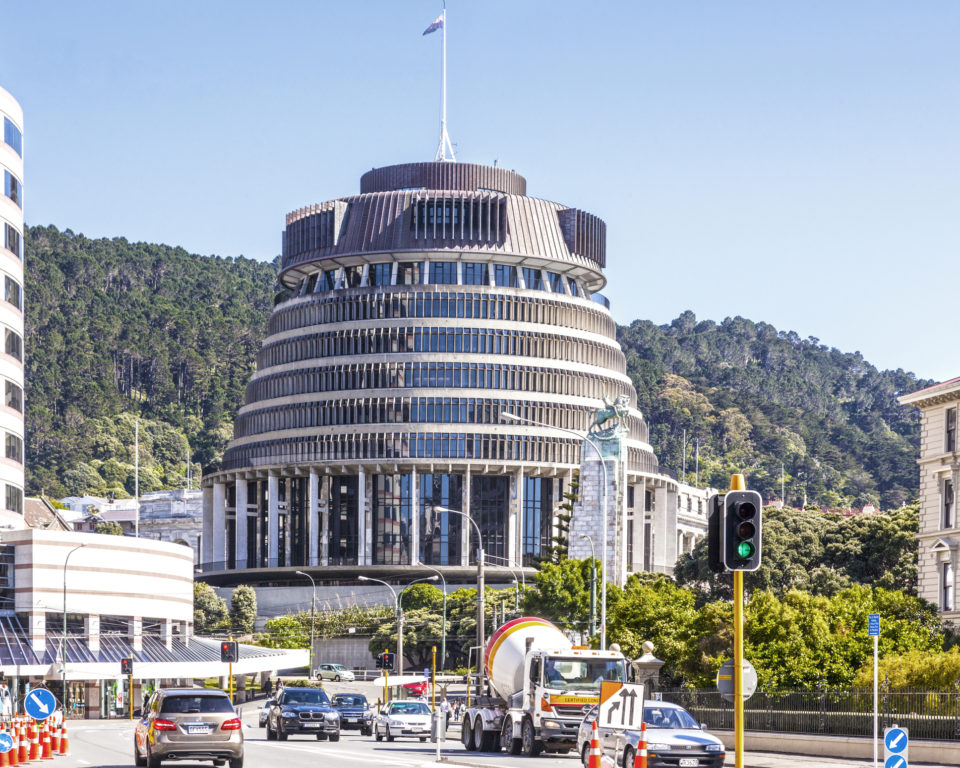At the end of November 2022, as Parliament sat under Extended Hours to pass the Committee of the Whole stage of the controversial Water Services Entities Bill, the Greens moved an amendment requiring that the support of a minimum of 60 percent of a future Parliament would be required for any proposal to privatise water entities or assets to succeed. With the support of Labour, the amendment was passed. By Peter Dunne.
No-one seemed too excited at the time, with the Leader of the House, Hipkins, admitting later that he had not even read the amendment fully before committing Labour’s support to it. As no political party is currently proposing or has previously proposed the privatisation of water assets, the Greens’ amendment seemed arcane and not worth worrying about.
Things changed over the next couple of days, however, with the country’s constitutional lawyers and academics quickly shouting “constitutional outrage” in the loudest terms. The outrage was directed, not so much at the issue of water privatisation but, at the fact that the long-standing principle, arising from the supremacy of Parliament, that in general one Parliament cannot bind its successor was being breached.
There are exceptions – principally around changes to electoral and constitutional law – where provisions are “entrenched” and unable to be changed by a future Parliament without a 75 percent majority in favour. Water privatisation was not seen to fit into these categories and the argument went that by extending the “entrenchment’ notion this way, even at the lower threshold of 60 percent, Parliament was beginning to walk down a dangerous path.
By the end of the weekend, even the Prime Minister was describing the entrenchment aspect as “quirky” and was promising the Cabinet would have another look at it. That was generally interpreted as an indication the Government would seek to overturn the amendment when Parliament next met.
But things are never that simple. After Cabinet, the Prime Minister announced that the matter was being referred to Parliament’s Business Committee to see whether agreement on the amendment’s future could be reached. Now the Business Committee, which meets weekly and comprises all parties, determines the order of business in the House for the coming week. It does not deal with, let alone, resolve policy issues.
Yet, here was the Business Committee, which operates on near-unanimity amongst its members, being asked – quite improperly – to decide a policy issue on behalf of the government. I was a member of the Business Committee for more than twenty years and never saw it used in this way.
The Government’s game-plan was immediately clear. It knew National and ACT disagreed with the Greens’ amendment, so there was no prospect of agreement, let alone anything approaching near-unanimity.
That would give Labour an excuse to withdraw its support, framing the argument that they had no option because of National and ACT. At the same time, they tried to paint the picture that by opposing the amendment National and ACT were effectively not ruling out water privatisation in the future.
According to Labour’s framing, this laid the fault for what had happened firmly at National’s and ACT’s doors. Under this narrative, it was nothing to do with the Greens who promoted it, nobly trying to save water assets from rapacious National and ACT.
Nor, was it anything to do Labour that blindly and unthinkingly supported the Greens’ amendment. The strategy is as devious as it is deceitful. And its resolution will consequently be more drawn out, meaning the situation will linger longer in the public mind.
It would have much easier – and quicker – had the Prime Minister simply admitted on the following Monday morning that the Government had made a mistake in supporting the Greens’ amendment, so would be recommitting it when Parliament next met and voting against it.
That would have been the end of the matter. The issue would have been over, almost before it started, and Labour would have got some credit for quickly realising the problem and moving swiftly to rectify it.
But, by trying to drag things out so that they could try and pin the blame for their original ineptitude on National, rather than admit their own error, all Labour did was prove correct Elton John’s lyrics, “sorry seems to be the hardest word”, especially for politicians.
In so doing, they have prolonged a controversial issue, not shut it down, and raised even more questions about how on earth they got themselves into this situation in the first place. Were they outsmarted by the Greens, or was Hipkins asleep at the wheel? The longer questions like this linger, the messier it looks for Labour, not the sort of message to be sending as election year approaches.
Of course, the current Government is not the first to find the prospect of saying sorry causes them to choke. Politicians of all hues and times have been similarly afflicted over the years. All range of verbal gymnastics have been employed to get politicians off the hook of having to say sorry. And, in a funny sort of way, people always expect that to be the case.
The one exception to this in recent times was Sir John Key, who was adept at saying sorry, and quickly moving on to the next issue, leaving people wondering what the first problem was all about. But his critics said this just showed him as glib and not taking issues sufficiently seriously.
One thing is for sure, though, Key never got himself into the tangle Labour’s obfuscation has left them in today.



